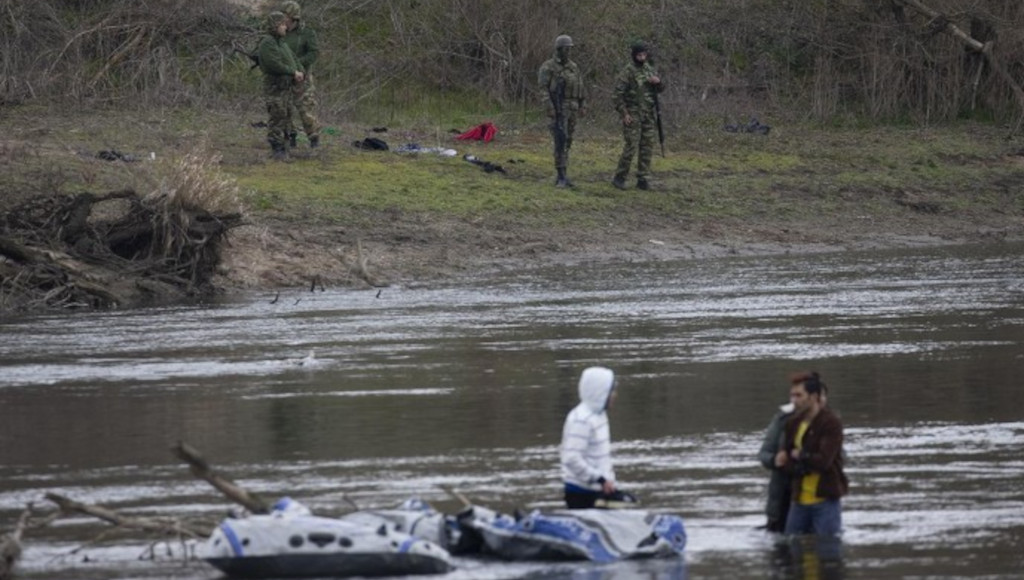A body buried in a potter’s field in İstanbul has been identified as one of the refugees who were allegedly thrown into a river by Turkish gendarmes after they were pushed back by Greece, the Stockholm Center for Freedom reported on Wednesday, citing the Mezopotamya News Agency.
Ali İsmail, the father of Muhammed İsmail, a Syrian refugee who has been missing since the incident, identified his son when looking at photographs shown to him on Tuesday at the İstanbul Council of Forensic Medicine. Muhammed İsmail’s body was buried in an İstanbul potter’s field on September 23.
In August a refugee named Sad El Delli had claimed that an officer in Turkey’s border city of Edirne ordered gendarmes to throw refugees pushed backed by Greece into the Evros River, causing the death of at least three refugees. El Delli said he was one of the survivors.
“After the Greek security forces pushed us back to Turkey at around 11:00 a.m., an officer separated the women from the group and said, ‘You’re free to go, you can return to İstanbul if you want’,” El Delli had recounted. “Then he ordered the gendarmes to throw us into the river in groups of five.”
According to El Delli’s account some of the gendarmes begged the officer not to make them throw the refugees into the river, but they were forced to do it. “Let them die,” the officer said according to El Delli, “just like our soldiers getting killed on the Syrian border. Let them die here.”
The Edirne Chief Public Prosecutor’s Office has declined to pursue the case without taking the testimony of all the witnesses or the accused. In its decision the prosecutor’s office said the evidence was not sufficient to justify pursuing the case.
A parliamentary question about the incident was posed by Mustafa Yeneroğlu, a deputy from the Democracy and Progress Party (DEVA) in August.
Last month Ahmet Baran Çelik of the Association of Lawyers for Freedom (ÖHD), who represents five of the six survivors, said they were worried that as the investigation by the Edirne Chief Public Prosecutor’s office had stalled, the authorities would cover up the incident.
Çelik said there was a culture of impunity in crimes involving law enforcement officers and that in most cases those who were responsible for such crimes were not even identified. He pointed out that if the investigation was not carried out carefully and effectively, then those who were responsible for the death of the asylum seekers would escape punishment.
“This is a very serious crime,” said Çelik. “This is not a case that can be stalled over a long period of time. My clients said they could identify the soldiers involved in the incident if they saw them. The authorities need to locate, identify and charge those responsible.”



